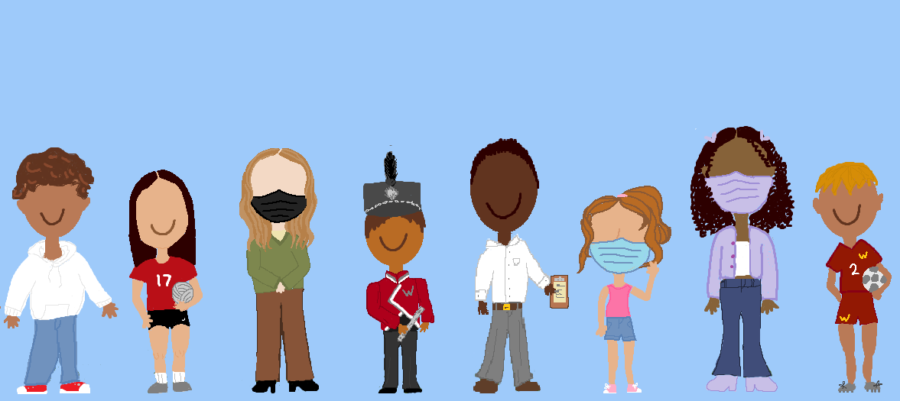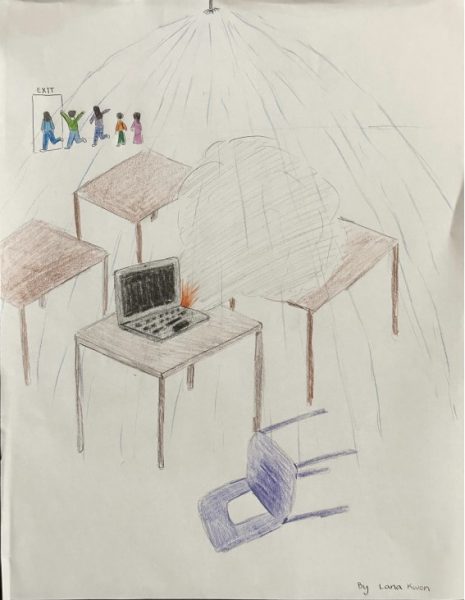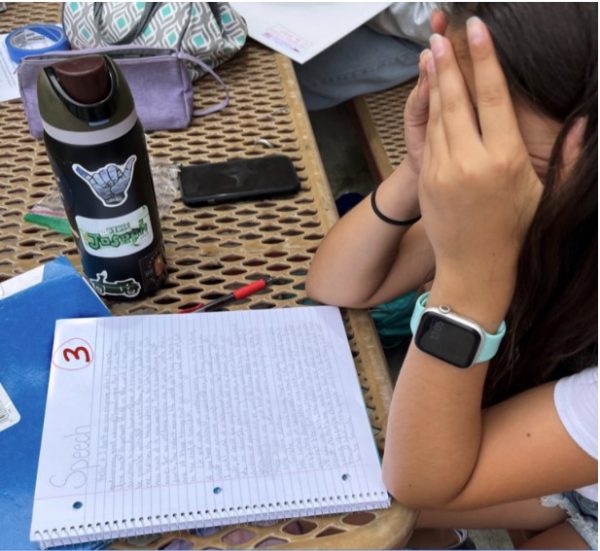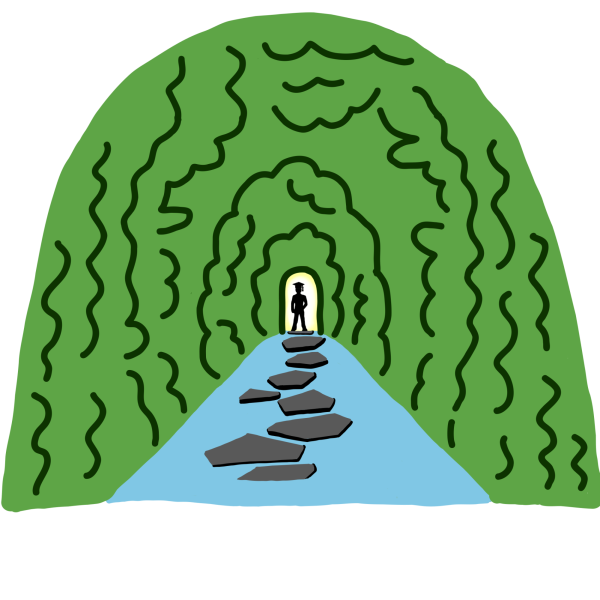Staff Editorial: Empathy in Action
Woodbridge students and staff come together to be compassionate as we go through a difficult transition.
With our return to a “traditional schedule” this year, students and teachers alike are introduced back to an environment that has become foreign. Covid-19 has instilled in people that they need to be more aware of people’s social and mental health, even though we are making progress towards normalcy.
The school curriculum as we know it in a titled “traditional year,” has changed.
“Since most everything was online last year, my schedule was mostly open, and there wasn’t a lot of homework. I had more time for extracurriculars and work, but now it’s just hard to fit everything into one day, and managing time conflicts,” junior Ashna Parekh said.
The effects of being online last year is apparent in classrooms: faster paced lessons and the convenience of an assignment being on a computer screen are now being integrated into our traditional curriculum. As students, this change from managing periodic Canvas assignments to having multiple assessments a day, five days a week is a big change from the previous hybrid schedule. The compassion that was given to students by teachers last year through extra help and resources should not just disappear now that we return to the traditional schedule. We feel that having our peers there for us, just as we were in the beginning of the pandemic, helps as we all adjust back to a more “traditional school” schedule. As we define how we make the best of this new schedule, we must have empathy for and be supportive of our peers as we slowly get used to this new, but once familiar school environment.
Being in lockdown may have made people develop signs of mental health issues because it made people more anxious about the increase in Covid-19 cases, mask requirements and social distancing from family and friends. According to a study done at William Mason High school, “…showed a 15.3% increase in depression, 17% increase in severe depression, 25.7% increase in anxiety, and 16.7% increase in severe anxiety after just one month of lockdowns.” Junior Kamelia Mozi developed a new interest in crafting and arts, created a new love for reading, and became proficient in a new sport, tennis. All of these new hobbies helped maintain her mental health in a healthy way during Covid-19. The comparison of before and after Covid-19 has truly changed our perspective on mental health by changing how we see it affects our daily lives. From juggling school, extracurriculars, communication skills, and socializing remotely. Now they developed a new perspective and methods on how they cope with their mental health.
Yet— we still see the lingering effects of Covid-19. After being in isolation for nearly a year-and-a-half, it may be difficult to be social. During the pandemic, four in 10 adults reported symptoms of anxiety or depression, whereas before the pandemic, only one in 10 adults reported symptoms of related mental health disorders (Kaiser Family Foundation). After being in isolation, we notice that our social battery is easily drained after going out with friends and going to social events. While we enjoy the privilege of being able to experience a sense of normalcy, a small part of us clings to the comfortness of being by ourselves and being able to structure our own daily routines. Though we realize that not everyone shares this sentiment, coming out of almost a year and a half of isolation can be challenging and uncomfortable. As we come back to in-person school, let’s be mindful of people who are still facing the mental repercussions of COVID-19. Join us in respecting the decisions of those who choose to stay inside, those who are mourning losses of family members and friends, and those who wish to remain socially distant. Most importantly⸺ we invite you to continue focusing on mental health and self-care. If you or a loved one are in need of mental health resources, there are many clinics and resources around our area, such as the Aspire program at Hoag, Sustain Recovery, and OC Revive. At Woodbridge High, the counseling department offers resources such as online therapy, tips for coping with stress, and the Hope Squad.
Even though there have been so many negatives, we would be able to make it through together because we are many, we are one, we are Warriors.
OC Revive:(844) 964-2770
Sustain Recovery: (949) 407-9052
Aspire Program at Hoag: (949) 557-0670
Your donation will support the student journalists of Woodbridge High School. Your contribution will allow us to purchase equipment and cover our annual website hosting costs.









